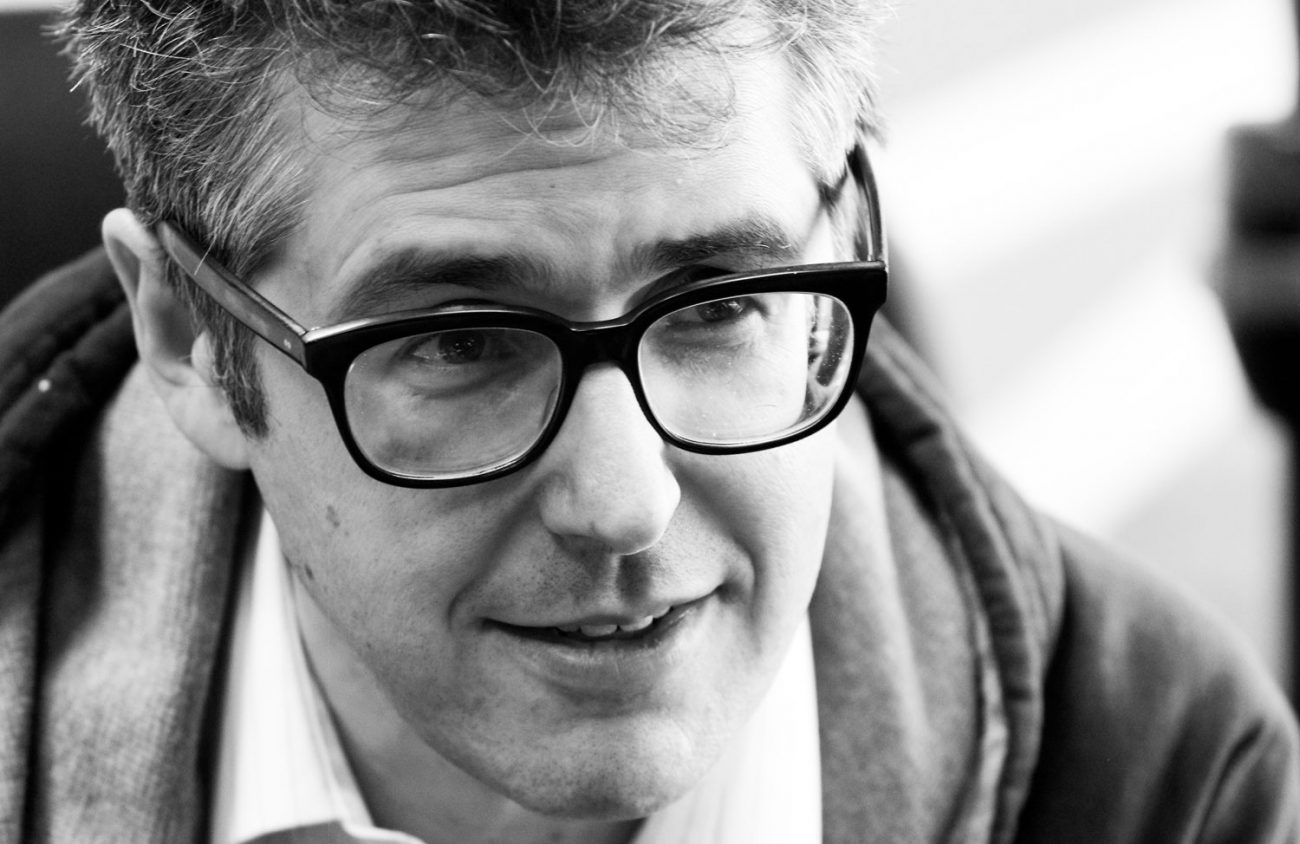Before binge-watching, there was binge-listening, and NPR’s This American Life damn near invented the practice. To some, the hugely popular show might seem ponderous and overly introspective (and to many others, these traits may even be considered faults).
Nevertheless, the program, hosted by Ira Glass, has been exploring different facets of the American psyche since 1995, with subject matters ranging from Hurricane Katrina to an episode called “Kid Logic” entirely devoted to the reasoning abilities of children.
Regardless of the topic, Glass acts as a sort of emcee and occasional therapist, bringing it all into focus, connecting the dots to present a picture of this weird and wonderful world we call America.
As a side gig, Ira Glass launched a traveling version of his show, with a tour stop in April at the Hult Center.
Recently, Eugene Weekly caught up with Glass to talk inspiration, the future of broadcasting, a radioman’s stage fright and an NPR host’s unlikely sex appeal.
Most of us know you from the radio. Tell us what to expect from a live appearance?
I talk about stories we’ve done on the radio show and stuff we’ve never even put on the radio show, and play clips and re-create the sound of the show around me. Also, I play a lot of video — things I think our audience hasn’t seen that we’ve made over the years.
What’s it like for a radio guy to get our there in front of a live audience?
When I started doing this, honestly it was totally terrifying. Now I’m used to it. In the beginning, I felt like I had no idea how to do it, so to get through it I tried to make my speech as much like a radio show as possible: I brought clips and music, basically mixed the thing live.
At the time, I had to have a mixing console on the stage where I would sit — like a desk with a mixer. Now the technology’s changed so that’s basically what I have in an iPad. I tried to make it as much like something that I knew as possible.
The internet has disrupted all kinds of traditional media. What’s the future of terrestrial radio?
Honestly, I’m not a big expert on that. In our little corner of radio, things are going great. Shows that are doing narrative journalism — long stories — are popular, and there are more and more of them all the time, springing up as radio shows and podcasts.
Malcolm Gladwell [Outliers] has his own narrative nonfiction radio show. That’s a sign things are going good when someone who’s insanely successful at what he’s been doing decides: “Oh I’m going to do that, too.” There’s trouble in other kinds of journalism. This is one little corner where things are very healthy.
Hosting a show called This American Life for as long as you have, have you learned anything about this American life?
I don’t have a concise answer to that at all. But I’m optimistic about America. We’re still a bunch of funny, smart, good-natured people.
Where do you find inspiration for topics covered on the show? Is there anything you’ve always wanted to cover on the show but have yet to?
Our format is flexible enough that if there’s anything we’re all excited to do, we can do it — especially in the last few years, as we’ve seen more money because of podcasting. Our audience has doubled. That means that we have more money that we can spend on stories. If that means we want to go visit refugee camps in Greece, we now have the money to do it.
Stuff in the news definitely inspires a certain amount of coverage. Occasionally something happens that will lead to some thought that we can put on the air. That’s rarer than you think. The stories have to be pretty surprising, pretty big. So it’s hard to get stories on the show.
Last, and this is the most important question of the conversation: What’s like being such a sex symbol for the intelligentsia?
[Laughing] I don’t feel like that at all! That is not my experience. I’ve been with the same person for 20 years.Well, when I floated that question to some friends preparing for this interview, they all thought that was the one I had to ask.
Is that true? Am I misperceiving my own allure?
Reinventing Radio: An Evening with Ira Glass is April 22 at the Hult Center; $35-$75, tickets at hultcenter.org or 541-682-5000.
